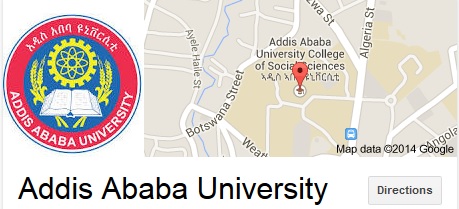AAU Hosts Symposium on Federalism

Center for Federalism and Governance Studies of the AAU held a symposium under the theme “What Keeps a Federation United?” On December 7, 2018 at Jupiter Hotel.
The role of Constitutional Principles, Unity in Diversity, Identity Determination, Ethnic Nationalism, National Identity and Revolutionary Democracy were at heart of discussion.
The symposium had three sessions; Keeping the Federation United in European Federal System, Factors of Unity in African Federations and Keeping the Ethiopian Federation Together.
Scholars, researchers, lawyers and political party representatives reflected their research findings, thoughts and prophecies concerning to federalism and the influential factors of unity in federal systems of different countries.
Prof. Merera Gudina, Addis Ababa University, in his presentation entitled ‘Competing Ethnic Nationalisms and the Quest for Democratic Federalism’ said that democratization without national consensus could not win the necessary legitimacy to rule the country. “All of us have to rethink the past and contribute our share in building of the new democratic Ethiopia to chart a new social contract honestly with commitment,” said Prof. Merera.
During the symposium Dr Asnake Kefale, Department of Political Science and International Relations AAU presented paper on ‘the new Ethiopian transition and reimagining of the future directions of the country’s federalism’. In his presentation Dr Asnake addressed the issues of Political reforms and Federalism in Ethiopia, the question how would Ethiopian federalism work without the dominance of the EPRDF or another party and the structure of federal system.
Another presenter was, Lovise Aalen, Research Director, CHR, Michelsen Institute. In her presentation entitled ’the Role of Revolutionary Democracy in EPRDF’s Federal Project’ depicted that Revolutionary Democracy has failed to provide a unifying vision and to preserve a common interest and outlook in the Ethiopian federation, due to a narrow exclusionist base; it was actively used to oppress dissent (both internal and external).

















 The main Admission Office It is located on the Main Campus (at Sidist Kilo) of Addis Ababa University.
The main Admission Office It is located on the Main Campus (at Sidist Kilo) of Addis Ababa University.









